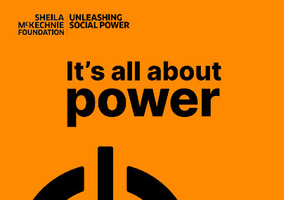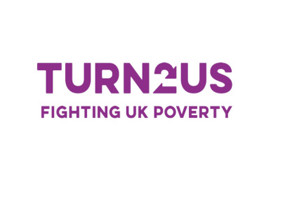Ricky McAddock co-founded Street Connect, a Christian outreach charity that aims to support people with addiction problems, in 2014.
Based in Glasgow, Street Connect works with people struggling with addiction and associated issues like homelessness and poor mental health. It does so through support groups, drop-in cafes and counselling. It has also recently begun providing flats for people leaving rehab.
From its first outreach centre in a Glasgow City Church café, it now operates in nine locations and is looking to expand further.
McAddock co-founded the charity with his wife-to-be Julie, and pastor Peter Vincent.
First-hand experience of addiction
Both Ricky and Julie have first-hand experience of addiction and finding faith inspired them to start the organisation. McAddock came to the faith as part of his own recovery 16 years ago.
He says: “When I was reading the Bible, I saw that Jesus wasn't in the churches, he was out mixing with people who were broken, the outcasts of the society of the day. He was mixing with the beggars, prostitutes, lepers – people who the religious people of the day said he shouldn't be mixing with.
“Jesus went against all that and he went where the people were, so that's where Street Connect came from. We follow his example and meet them where they are. Love them. Love them back to life. We accept them as they are. Whether they're interested in faith, it doesn't really matter, we'll still love them anyway. If we can support them towards a better life that's a success. People might have the faith and if they do, that’s great, but if they don't, that's fine as long as we can help them make progress in their lives.”
Having two people with lived experience lead the charity has helped to make it successful, McAddock says.
“I think having that good balance of professionalism and lived experience has helped shape our services and I think what's made them successful,” he says.
Nine years on from when Street Connect was founded, McAddock is currently writing a book in time for the charity's 10-year anniversary. It will cover his and his wife’s journey into leading the charity. He says Street Connect is allowing him to write during work hours and will cover any associated costs.
A rise in income
From 2019 to 2022, Street Connect’s income rose from £311,889 to £548,106. Various funding pots and grants allowed it to surpass the half-million mark, and in turn Street Connect invested back into its fundraising team over the last year.
The charity’s income is primarily made up from trusts and grants. This stream grew despite the Covid-19 pandemic, McAddock says.
When a charity reaches an income of over £500,000, the Scottish charity regulator requires charities to provide audited accounts, which was a learning curve for the charity.
“So we then had to upgrade finance systems and auditors have to come in and things, so it was quite a steep learning curve for us, even though it was great for income to go over like that.”
Street Connect’s finance systems, fundraising and operations processes all had to be updated as a result.
“We did get quite a good Covid response. Initially, like everyone else, we had to move everything online and do phone support and run online meetings.
“But as quickly as we were able, we wanted to start meeting with people, because those who are struggling with addiction or were in recovery risk relapse by being even more isolated than normal, so it was pretty severe. For those that were in recovery for some time and had been abstinent, relapse and overdose could be fatal – so we were keen to get back to meeting people in person.”
‘Our services are for everyone – faith or no faith’
Religious charities are not able to apply for some grants, so funding can be challenging at times, McAddock says.
However, faith is a central part of Street Connect that its founders are not willing to compromise on.
“I think over recent years, there has been a bit of a shift where a lot of places are more willing to fund [faith charities] and see the benefits of it – such as the Drugs Mission Fund Commission that came out which has to be funded within a local authority. They say a lot of people looking into recovery want that spiritual aspect so we want to refer people towards us. It’s an option that a lot of people are seeking and we’re able to provide that.”
McAddock says that having Street Connect’s outreach centres connected with churches can help the charity reach people more easily.
“The church is embedded in the community and they can already provide quite a good supportive community. Someone once said the opposite of addiction isn't sobriety, it's connection. People are so isolated and lonely.
“There’s good solid relationships and connections which a wider church community can provide beyond its core services. So we're finding it’s been highly successful as they have a local connection.”
Staff members experience ‘vicarious trauma’
McAddock says that the issues its 20 staff face day-to-day can be upsetting. Some of the “vicarious trauma” and “stories you hear can be pretty horrendous”, he says.
Some of the people the charity works with may have experienced “neglect and abuse as children, as adults – sexual, physical or mental – and you can understand why some people are where they are because it's so horrific.
“I've spoken at various funerals of people that we’ve supported who've slipped back into addiction,” he says.
Because of the often upsetting nature of the work, having wellbeing support in place for staff is paramount. “We have developed a whole wellbeing package for the team over recent years. We try and make a good working environment and have recently reduced the working week from 37.5 hours to 35. It’s only two and a half hours but the same pay – we want to give our staff a better work-life balance.”
The charity has also increased levels of flexible working and annual leave entitlement, and partnered with a qualified counsellor who supports workers and can speak with.
Recruiting the ‘right people’ can be a challenge
One of the biggest challenges for Street Connect is “having the right people in the right seats” McAddock says.
Recruitment and retention is a sector-wide issue, but as a charity that only employs candidates with a Christian faith, that can limit talent pools even more.
“That makes recruitment even harder. We recognise that – but it's a decision that senior leadership and the board want to maintain.
“I think we're always challenged on certain decisions we make. Once we are fair and strong on why we made that decision, then the key has to be with us and trusting that this is what God wants for us. In the right time, in the right way, the right people will come along and if that takes a bit longer then that's fine.”
Related articles












